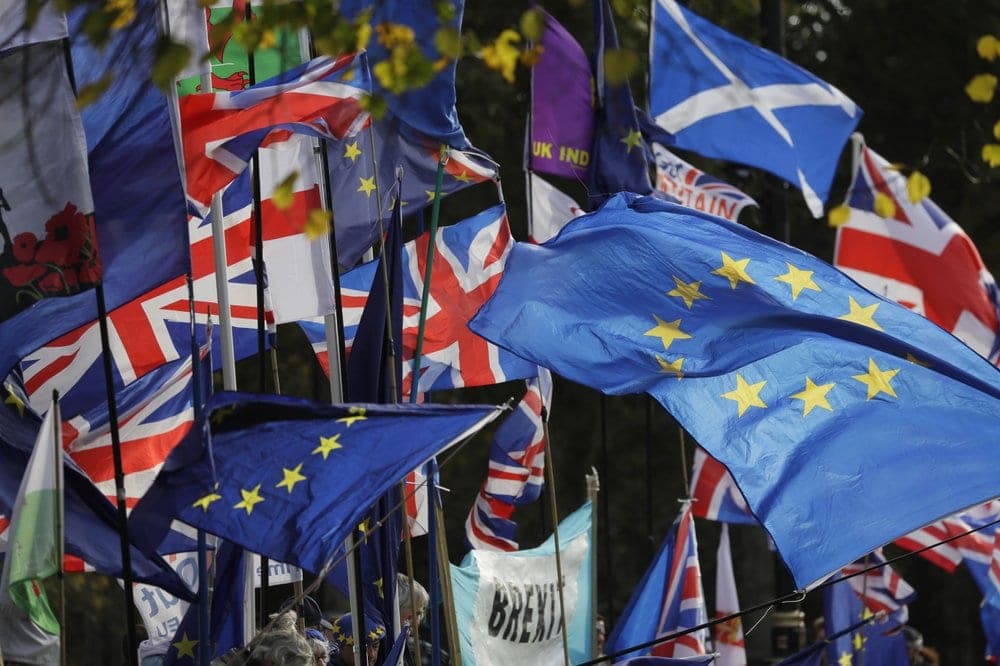LEICESTER, United Kingdom – Scotland’s bishops have warned against “divisive” politics ahead of the UK’s Dec. 12 general election.
In a statement issued before the polls, the bishops said the vote “presents us with an opportunity to elect an individual representative who reflects as closely as possible our beliefs.”
“It allows us to revisit Catholic Social Teaching and to connect our voting to our Catholic faith. It can be a chance to proclaim the inherent dignity and value of every human being, made in the image and likeness of God, and to promote the common good,” the bishop said in a letter released on Monday.
“In recent times, politics has become divisive, principally, though not exclusively, as a result of the EU referendum. Vigorous debate has sometimes spilled over into personal attacks and even acts of violence which are never acceptable,” the letter continued.
Scotland has its own bishops’ conference, which is a separate body from the Catholic Bishops’ Conference of England and Wales; Northern Ireland’s bishops belong to the Irish bishops’ conference.
Current polls put present Prime Minister Boris Johnson’s Conservative Party well ahead of the opposition Labour Party, led by Jeremy Corbyn.
The Liberal Democrats are a distant third, followed by the single-issue Brexit Party.
However, in Scotland the situation is different. The pro-independence Scottish National Party is likely to get nearly half the votes, distantly followed by the Conservative Party. The Labour Party, which once saw Scotland as a stronghold, is third in the opinion polls.
The Liberal Democrats are only polling at about 7 percent, while pro-Brexit parties have virtually no support north of the English border.
Although not endorsing any candidate, the Scottish bishops listed several issues that Catholic voters should consider before voting.
“It is the duty of all of us to uphold the most basic and fundamental human right – the right to life. We should urge candidates to recognize human life from the moment of conception until natural death and to legislate for its protection at every stage, including protecting the unborn child, ensuring that both mother and child are accepted and loved,” the bishops said, saying that abortion, assisted suicide and euthanasia are “always morally unacceptable.”
The bishops also called on the UK government to end its support of “anti-life initiatives” overseas, calling it “ideological colonization.”
The letter also drew attention to poverty at home and abroad.
“Too many people still struggle to make ends meet, homelessness is on the rise, and the two-child limit on tax credits is disproportionately affecting families of faith. This reality cannot and should not endure in our country in the twenty-first century. Reliance on food banks, particularly for families, is a telling criticism of a society that has forgotten its poor people in its midst,” the bishops said.
“Our concerns should also extend to maintaining and improving the UK’s commitment to international development, which helps some of the poorest people in the world. Aid should not be used to support immoral practices such as those which compromise the basic right to life,” they continued.
“Legislation in our country should also welcome refugees, asylum seekers and migrants, remove the inhumane policy of indefinite immigration detention, and provide for those people living in and around conflict zones while committing to working towards the peaceful resolution of conflict,” the letter said.
The bishops also called for fiscal support for married couples and families with children; a commitment to campaign for international religious liberty; the protection of the environment, and the elimination of Britain’s nuclear arsenal.
Follow Charles Collins on Twitter: @CharlesinRome
Crux is dedicated to smart, wired and independent reporting on the Vatican and worldwide Catholic Church. That kind of reporting doesn’t come cheap, and we need your support. You can help Crux by giving a small amount monthly, or with a onetime gift. Please remember, Crux is a for-profit organization, so contributions are not tax-deductible.
















